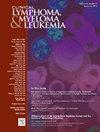Expert Opinion on Multiple Myeloma Treatment in Brazil in the Bispecific Antibody Era
IF 2.7
4区 医学
Q2 HEMATOLOGY
引用次数: 0
Abstract
Multiple myeloma treatment has evolved rapidly with the development of novel targeted therapies. The paper outlines multiple myeloma epidemiology, current treatments, and recent advances, highlighting the role of bispecific antibodies. Brazilian authorities have approved 3 bispecific antibodies (teclistamab, elranatamab, and talquetamab) for relapsed/refractory multiple myeloma patients who have received at least three prior therapies. These therapies have shown promising efficacy in clinical trials, with 61%-74% overall response rates. However, access to these treatments varies significantly between Brazil's private and public healthcare systems. A panel of 6 Brazilian experts in multiple myeloma and bispecific antibody therapy convened for a three-day virtual conference organized and moderated by Americas Health Foundation. They addressed key questions regarding bispecific antibody therapy in multiple myeloma and developed consensus recommendations. While bispecific antibodies offer new hope for multiple myeloma patients, challenges remain in ensuring equitable access to these therapies. The paper discusses the sequencing of bispecific antibodies with other treatments, the management of adverse events, and the need for real-world data. It also highlights the disparities in multiple myeloma treatment between Brazil's public and private healthcare systems, emphasizing the need for targeted efforts to bridge this gap and improve outcomes for all multiple myeloma patients.
双特异性抗体时代巴西多发性骨髓瘤治疗的专家意见。
随着新型靶向治疗的发展,多发性骨髓瘤的治疗迅速发展。本文概述了多发性骨髓瘤的流行病学、目前的治疗方法和最新进展,重点介绍了双特异性抗体的作用。巴西当局已批准3种双特异性抗体(teclistamab、elranatamab和talquetamab)用于既往接受过至少3种治疗的复发/难治性多发性骨髓瘤患者。这些疗法在临床试验中显示出良好的疗效,总有效率为61%-74%。然而,在巴西的私人和公共医疗保健系统中,获得这些治疗的机会差别很大。由6名巴西多发性骨髓瘤和双特异性抗体治疗专家组成的小组召开了由美洲卫生基金会组织和主持的为期三天的虚拟会议。他们讨论了有关多发性骨髓瘤双特异性抗体治疗的关键问题,并提出了一致的建议。虽然双特异性抗体为多发性骨髓瘤患者带来了新的希望,但在确保公平获得这些治疗方面仍然存在挑战。本文讨论了双特异性抗体与其他治疗方法的测序,不良事件的管理,以及对真实世界数据的需求。它还强调了巴西公共和私人医疗保健系统在多发性骨髓瘤治疗方面的差异,强调需要有针对性地努力弥合这一差距,并改善所有多发性骨髓瘤患者的预后。
本文章由计算机程序翻译,如有差异,请以英文原文为准。
求助全文
约1分钟内获得全文
求助全文
来源期刊

Clinical Lymphoma, Myeloma & Leukemia
ONCOLOGY-HEMATOLOGY
CiteScore
2.70
自引率
3.70%
发文量
1606
审稿时长
26 days
期刊介绍:
Clinical Lymphoma, Myeloma & Leukemia is a peer-reviewed monthly journal that publishes original articles describing various aspects of clinical and translational research of lymphoma, myeloma and leukemia. Clinical Lymphoma, Myeloma & Leukemia is devoted to articles on detection, diagnosis, prevention, and treatment of lymphoma, myeloma, leukemia and related disorders including macroglobulinemia, amyloidosis, and plasma-cell dyscrasias. The main emphasis is on recent scientific developments in all areas related to lymphoma, myeloma and leukemia. Specific areas of interest include clinical research and mechanistic approaches; drug sensitivity and resistance; gene and antisense therapy; pathology, markers, and prognostic indicators; chemoprevention strategies; multimodality therapy; and integration of various approaches.
 求助内容:
求助内容: 应助结果提醒方式:
应助结果提醒方式:


